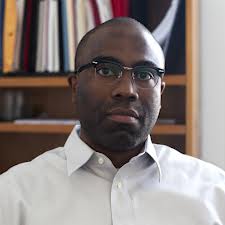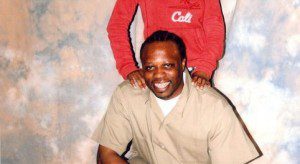One of the great gifts of Common Prayer is that I know friends all around the world are praying with me everyday. Whatever we’re up against in our struggle to become the answer to our prayers here in Walltown, we’re not alone. I get notes of encouragement from some friends, prayer requests from others. We are a family knit together by the Holy Spirit, sustained by grace in the struggle for justice.
Some of my most faithful corespondents in this world-wide conspiracy of faith are sisters and brothers in prison. One brother from the neighborhood here makes a point to pray with us at 8am every morning in the cell where he’s been held in solitary confinement for over a year. His letters, which began with desperate pleas for help, have more and more become gifts of wisdom from a contemporary desert. Abba Moses said, “Go into your cell and your cell will teach you everything.” I wrote today to thank my brother in solitary for what he’s teaching me–and to thank God for uniting us in prayer.
… I know your daily circumstances are extremely isolating, but you’re not alone. Besides our Lord, who is always everywhere, there is a great cloud of witnesses joining you in prayer, morning, noon, and midday. It’s a great gift to be part of that family together.
Several years ago, when we were engaged in nonviolent direct action to stop executions at Central Prison, I ended up spending a night in the Wake Co. Jail. The thing I remember most was how disorienting it was to be under those florescent lights 24 hrs a day. I can’t imagine what it does to you to be there day after day, week after week. I know it’s nothing but God who’s keeping your mind and breathing hope into your soul.
What an incredible testimony to the Lord’s power that there, in the worst of human conditions, you are experiencing healing. We have stories from the early church of people going out into the desert, like Jesus did, to wrestle with the demons and learn to trust God. These hermits, called “desert fathers and mothers,” would pray for people back in the world that they had left behind. When I think about them and their prayers, I think about you and yours—how you’re wrestling with the demons of today and lifting up prayers for all of us there in the desert of our prison industrial complex. Of course, you didn’t choose the deprivation you are experiencing, and it is a great injustice. But the cross was also a great injustice. Still, Jesus turned it into the symbol of God’s triumph over the enemy. God is taking what others meant for evil and turning it to good.
But I can only imagine that some days are excruciating. You are not only facing the difficulties of the present in the SHU [Special Housing Unit], but also the demons of your past. The loss and the abuse that you describe are heavy burdens, and their memory is often whispered by the devil with the hope of driving us to despair. What is more, none of us are simply victims. We are not only harmed by the evil done to us, but also by the evil that we ourselves do in response. So anger tempts us to hate those who hurt us. But it also conspires to make us hate ourselves.
You know as well as I do how many people have been consumed by this self-hatred—driven to violence that gets them killed or to drug abuse that masks the pain while slowly destroying their mind. It’s no wonder that some people go insane. And yet, God in his mercy meets us at the place where we stand frozen stiff before the power of these demons and says, “Your sins are forgiven.” God says, “I love you. You are mine. You are more than the worst things that have happened to you—more than the worst things you’ve done. I love you because I made you. I love you, and I won’t let go.”
I’ve been reading the story in Mark 2 where four friends bring a man to Jesus who’s been so crushed by life’s circumstances that he can’t get out of bed. They pick up his bed, one at each corner, and bring him to Jesus. And what does Jesus say? “Your sins are forgiven.” Jesus begins by addressing the man’s deepest wound. This, I think, is the gospel—that Jesus meets us where we are and says, “Your sins are forgiven.” Jesus says, “You’re OK. I love you. You’re not alone anymore. I’m here with you. And these friends are with you too.”
Mark says that Jesus healed the man later. But only to show the religious folk that he had the authority to forgive sins. The miracle is only a sign. The man gets up and walks to prove that he is God’s beloved, invited into beloved community.
Your healing is a miracle to me—a sign that points to the good news of God’s love for each and every one of us. I know we could all wish for more miracles—that all of our broken relationships could be restored, that the guards against whom you’ve filed grievances would be transformed from enemies to friends, that the prison walls would come tumbling down and the lion could lay down with the lamb in God’s eternal kingdom. We pray together, “Come, Lord Jesus.” But, in the mean time, I give thanks that Jesus has said to us, “Your sins are forgiven.” I give thanks that God has given us each other, and that we have a little bit of heaven even now whenever we join our whole selves with God in the eternal song of thanksgiving that is our common prayer.
It’s a gift to be praying with you, brother,
Jonathan
It is, likewise, a great gift to be praying and acting with each of you.











